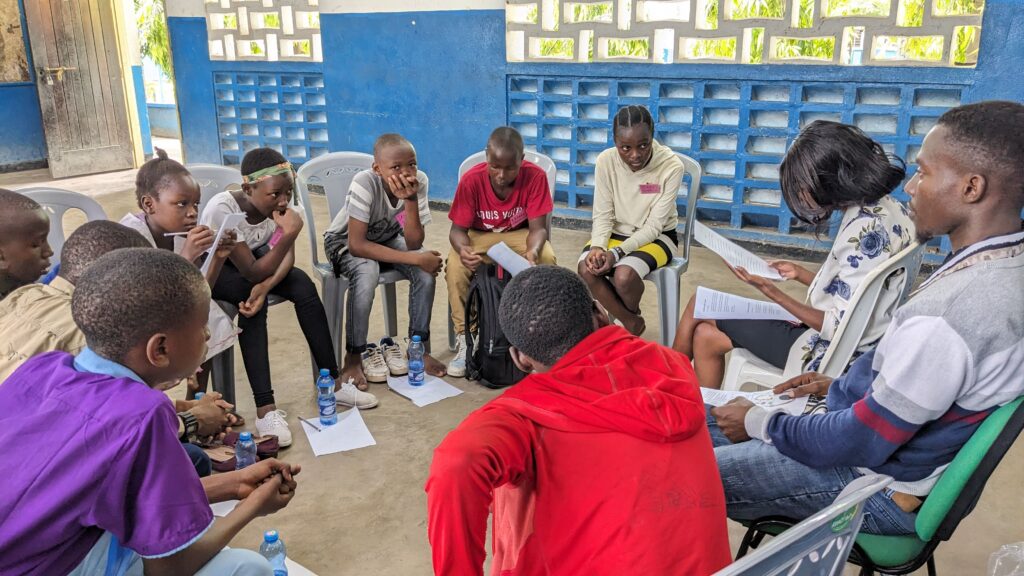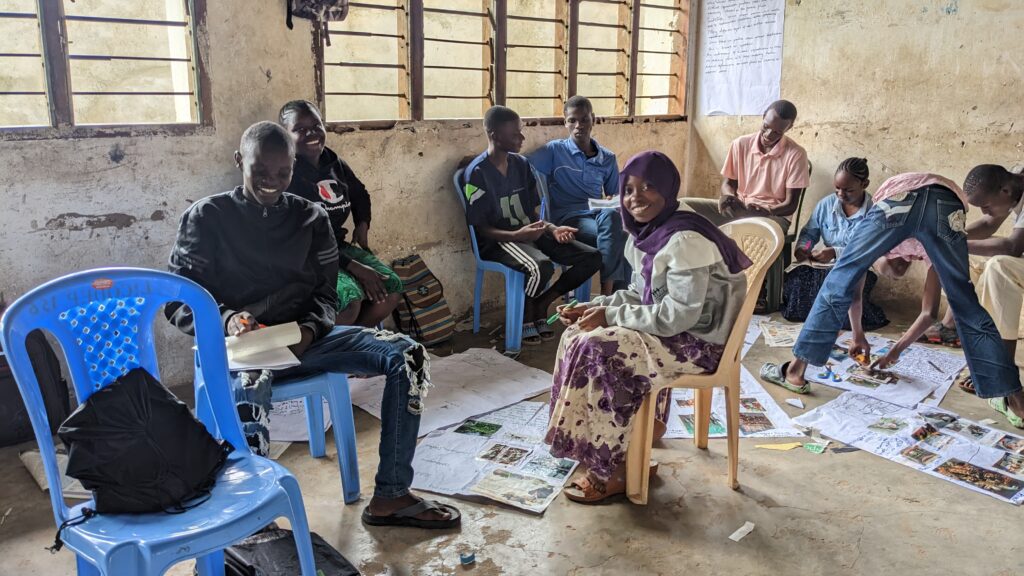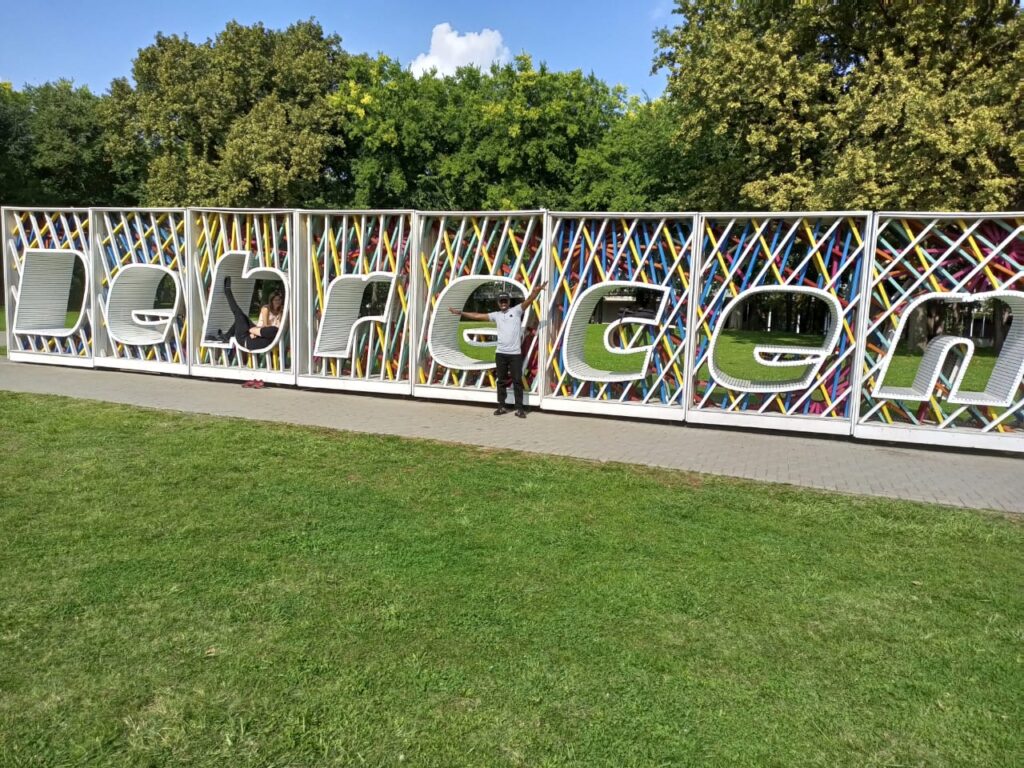
Some might say that Daniel Kalasa was born under a lucky star. With one term left to his KCPE examination, Daniel’s father sat him down and admitted that he couldn’t be able to support both Daniel and his older brother (who was also doing his KCPE examination the same year) through high school. “I didn’t need to be told because I could see it from the kind of life we lived,” Daniel says. His mother used to sell hand-made liquid soap while his father used to buy soap sachets wholesale and sell it in their village. Their income could barely sustain the family of nine.
Daniel immediately got to work and applied to three scholarships: Hatua Network, Equity Wings to Fly, and another scholarship program run by his home church. The following year two things happened: Daniel’s results came out and he found that he manage to score 364 marks in his KCPE examination, and he also learned that he had been selected for all three scholarship programs that he had applied to.
How did you decide to go with Hatua Network’s scholarship program?
I had to choose one, so I sat down with my primary school maths teacher, Mr. Maina, and we looked through the pros and cons of all the scholarship programs. I decided to go with Hatua because they supported their beneficiaries up to when they joined university and even beyond that.
And that’s how your Hatua journey began…
Yes. I started my high school education in 2010 at Moi Forces Academy in Likoni. Hatua took care of my school fees and uniform. When I requested to switch from day scholar to a boarder, they helped make it happen. Then in 2014, I finished my high school education and scored a B in my KCSE, which eventually led me to join Kibabii University in Bungoma County to study mathematics. Again, Hatua helped finance my education: they paid my rent and even gave me upkeep money to keep me going. In 2019, I graduated with a First Class Honours in Mathematics from Kibabii University.
Wow, congratulations! A first-class honour in mathematics is no small feat, what were your next steps?
I had studied a lot of theory in university but I had very little practical experience. I decided that I didn’t want to go looking for a job immediately. I wanted to build my career and gain more practical skills than the theory I’d spent four years studying at University. I always wanted to become a professional data scientist and luckily, I met Mr. Blasio Mulama, a data analyst during my industrial attachment at my university. He became my friend and mentor.
How did your friendship with Mr. Mulama play into your career ambitions at the time?
During the third month of my industrial attachment, he started training me on data analysis and how to use analytical software programs such as SPSS. I learned a lot from him and the Youtube tutorials I used to watch. By January 2020, I was ready and so he and I registered a data analytics company called B & D Research Analytics Consultancy in Bungoma County.
You went from looking to build a career to having your own firm right after university. How was that experience and how was business at the time?
Fortunately, my teacher, turned friend and partner, is well-connected so we received a lot of business. One of our biggest clients was Mumias East sub-county. We were contracted by the Member of Parliament to research on the performance of high schools and primary schools within his constituency and suggest recommendations on what could be done to improve their performance.
We also did research projects for smaller clients like PhD students. And we did that for a while until Mr.Mulama suggested that it was time for us to level up our skills and look for scholarships that would allow us to work part-time.
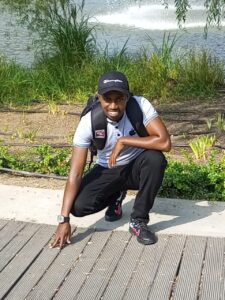
Is that when your second scholarship journey began?
Yes. I began looking for scholarship programs to study abroad. In January 2021, I applied for two scholarships: the Stipendium Hungaricum Scholarship which supports students to study in universities in Hungary, and AIMS – Next Einstein Initiative Masters Scholarships for African students in mathematical sciences.
In February 2021, I was selected to interview for the Hungarian scholarship, which went well. Later on, I also did some assessments with two universities in Hungary, one of which was the University of Debrecen. On July 15th, I was informed that I was awarded the scholarship in Hungary. Then a week later, I also learned that I’d also been awarded the AIMS scholarship as well.
That sounds like where you were not too long ago, being the lucky recipient of more than one scholarship.
I was confused, to be honest. On one hand, I had the AIMS scholarship which needed me to accept or decline the scholarship offer within seven days, yet I had already accepted the offer to study in Hungary without the surety of a visa or passport. So I wasn;t even sure that I would make it to Hungary.
What did you do?
I turned to another friend of mine, Dr. J.K. Maiyo, a Deputy Vice-Chancellor at Kibabii University. Actually, I like to think of as my ‘grand mentor because he mentored my mentor, Mr. Blasio Mulama. He had been instrumental in guiding me when I started applying to these scholarships. He advised that it was rare for students to be denied Hungarian study visas so it was safe for me to let go of my AIMS Scholarship. I sent them an email declining their offer and explained why I wasn’t able to accept it which they graciously accepted.
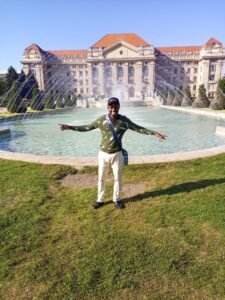 That was a huge sigh of relief I’m sure. Now all you had to do was worry about getting to Hungary in time for the start of your semester.
That was a huge sigh of relief I’m sure. Now all you had to do was worry about getting to Hungary in time for the start of your semester.
Definitely! But while the Hungarian scholarship supported my tuition and accommodation, it didn’t cover the costs of travel. So I turned to the only people I’ve come to call family over the years — Hatua.
Hatua came through and paid for my air ticket to Hungary, so all I had to do now was get on the flight. I traveled on 3rd September 2021 and arrived on 4th September at exactly 10.50 am.
Your story really is an inspiration to many. Unlike most youth who graduate, you didn’t immediately start looking for employment, instead, you chose a different direction which led to you starting a firm and now studying for your master’s degree in Hungary. What advice would you give someone about to graduate?
I’d tell that person to stay focused on the bigger reward. The job you get right after you graduate of course will be exciting, but don’t be short-sighted with the smaller pay you get. However, I know that a degree in Mombasa, even to be more specific, Likoni certainly makes you competitive. In fact, I never had to look too hard for a job when I came back to Mombasa during the holidays while I was in university.
However, I think it’s important to look at it from a different perspective. It’s about the long-term goal. After graduation, your target should be to advance your skills. Of course, you can work for a few months, even years if you like, but you shouldn’t think that this is it. Don’t settle. Aim for the greater goal and further your studies. You will become more competitive that way.
Daniel Kalasa is a Hatua beneficiary and alumni. Stories like his encourage us to keep going and remind us that our supporters make stories like his possible. Please consider donating today to help educate even more brilliant but marginalized youth from Mombasa County.
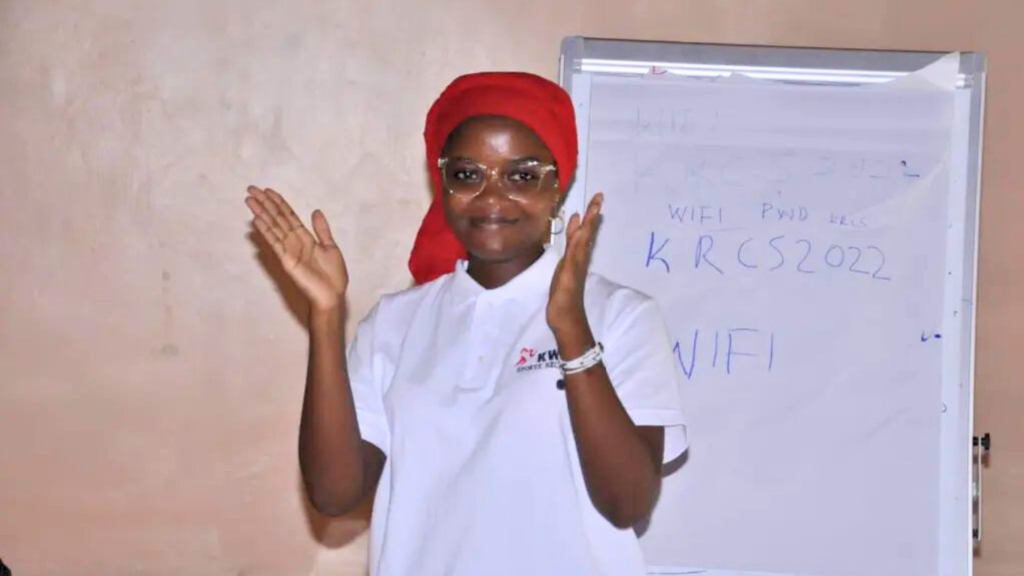
 Read More
Read More